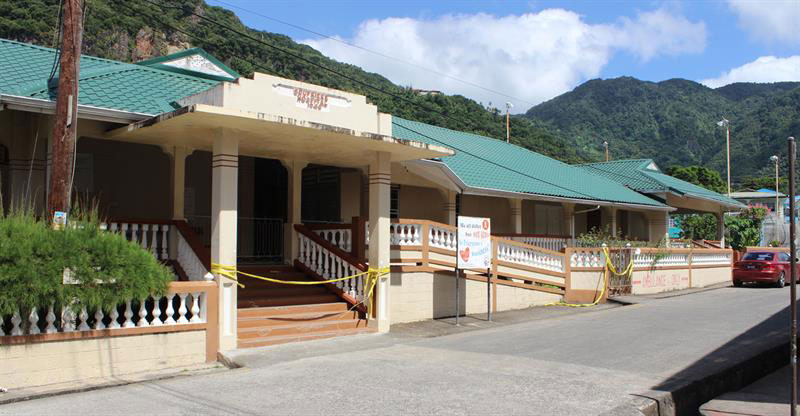
Almost three years ago, the COVID-19 pandemic first breached the shores of Caribbean countries, causing severe economic and social dislocation and putting immense strain on health systems throughout the Region.
Now, as the Region continues its recovery, the Caribbean Development Bank (CDB) has committed US$29.8 million to strengthen health systems in Grenada, Saint Lucia and St. Vincent and the Grenadines to better withstand future health crises.
At a meeting on Thursday, March 30, the Bank’s board of directors ratified approval of three loans in the sums of US$9.97 million, US$9.86 million and US$10 million to the Governments of Grenada, Saint Lucia and St Vincent and the Grenadines respectively. The funding is allocated from resources provided by the European Investment Bank (EIB) to CDB under the EIB Climate Action Line of Credit II – COVID-19 Component.
CDB’s Vice-President of Operations, Isaac Solomon said the COVID-19 pandemic had revealed cracks in the health care systems, making the investment timely.
“The unrelenting demands of the pandemic unearthed and made more prominent and urgent, critical frailties in our health sector around the areas of limited human, infrastructure and institutional capacity,” said Solomon.
He added:
“Accordingly, there is an urgent need for upgrading to strategically position our countries to be able to respond to present and emerging challenges. We are therefore pleased to be able to approve these resources to help strengthen resilience.”
In Grenada, the funding will assist with infrastructural works and updates at various medical facilities including the St Georges General Hospital, the Westerhall Medical Station, the St Georges Medical Station, the Grand Bras Health Facility, the New Hampshire Health Facility, the River Sallee Medical Station, the Hillsborough Health Centre and the Mt. Gay Psychiatric Hospital.
It will also fund capacity building and training for health care workers in key areas including the Biomedical Equipment Technician Certification, rehabilitation and counselling, and risk communication. The funding will also support increased training for nurses in a range of specialities including intensive care, nephrology, neonatology, emergency care, geriatric care, oncology and nursing administration.
The loan will also cover support for purchasing of goods and equipment throughout the health sector as well as institutional strengthening initiatives such as a planned digitalisation of the health sector.
In Saint Lucia, nearly US$2 million of the funding will be utilised for purchasing critical medical equipment such as ventilators, x-ray machines, ultrasound machines and dental, neonatal and eye care equipment. The equipment will go to health facilities across the island, including the La Ressource Wellness Centre, Castries Urban Centre, Dennery Hospital, Soufriere Hospital, Comfort Bay Home for Older Persons, St. Jude Hospital and two respiratory clinics – Vieux-Fort Wellness Centre and Gros Islet Polyclinic.
Over US$3 million will be allocated for improvements at five health care facilities. Two facilities damaged by fire in recent years – the La Ressource Wellness Centre and the Soufriere Hospital, will be refurbished and rehabilitated while the Comfort Bay Home for Older Persons, will be expanded and retrofitted. The Castries Urban Centre will be relocated and expanded and a new annex will be added to the Dennery Hospital.
Other funding will go towards procuring supplies and pharmaceuticals as well as providing a range of training and capacity building solutions for health care workers.
Strengthening the medical supply chain will get needed investment in St Vincent and the Grenadines, with US$3.3 million of the funding to support works to establish a Central Medical Warehouse.
Nearly US$2.3 million will be put towards medical and other equipment at the Milton Cato Memorial Hospital, such as a new distillery system for the pharmacy, equipment for the operating theatre, maternity ward and NICU, for the wards and other departments, and a CT Scanner, X-ray Machine and Hyperbaric chamber.
Building up the skills of health care workers is also a priority with a specific focus on filling skills gaps. Specialised training will be provided for operating theatre nurses, radiology staff, lab technicians, risk communication staff and others.
Other funding will go towards engaging additional health care staff in key areas, the establishment of a dedicated secretariat for the Health Security Unit and the supply and installation of a medical oxygen plant.













